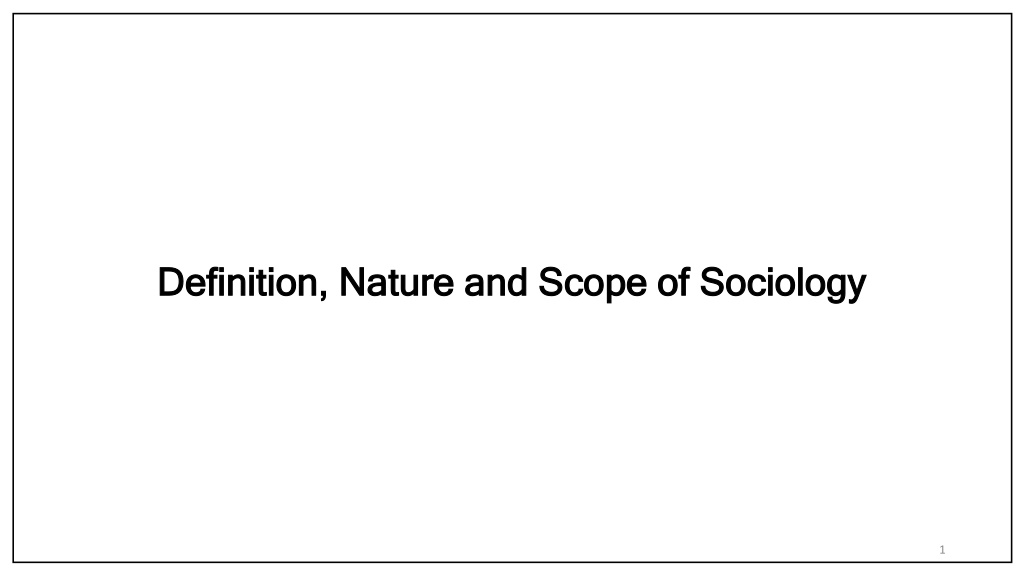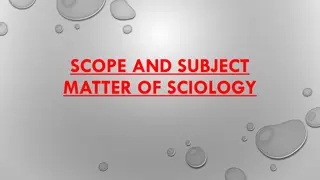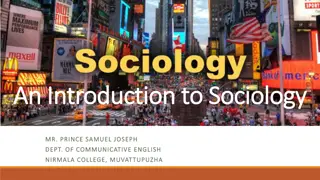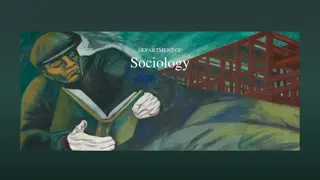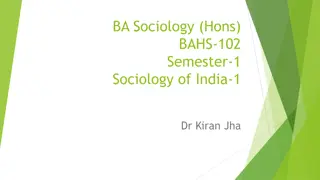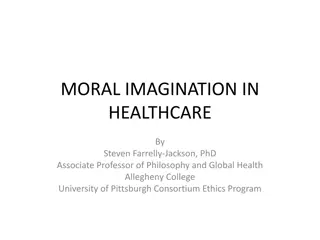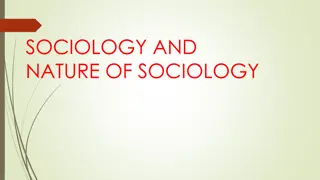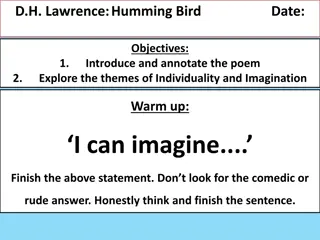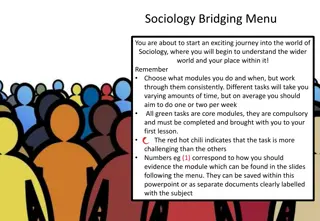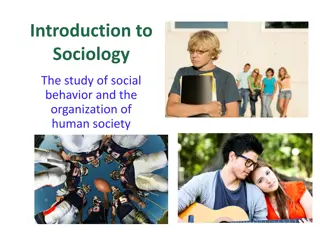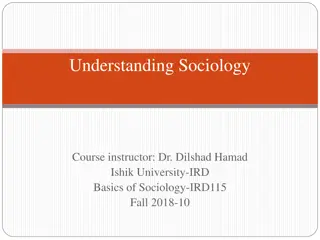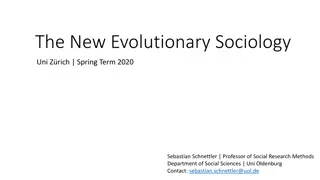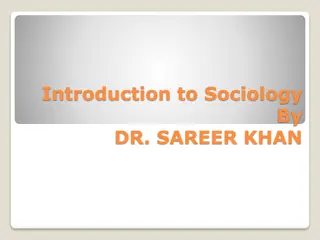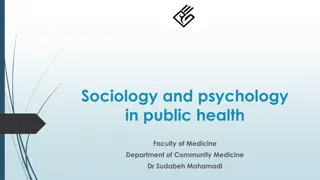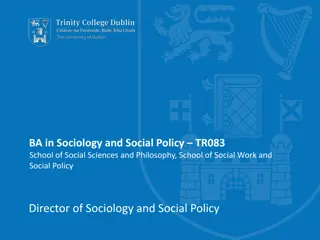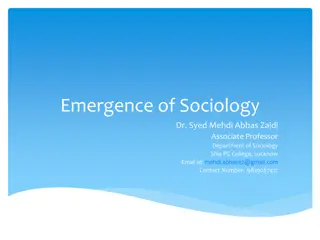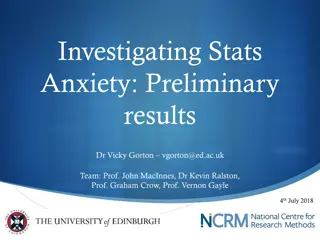Understanding Sociology: Definition, Power, Imagination, and Scope
Sociology is the systematic study of human society, examining how societal power shapes individuals, the sociological imagination connects personal troubles to public issues, and the scope of sociology involves researching social life, developing theories, critiquing society and policies, aiding policy development and implementation, and evaluating social policy outcomes.
Download Presentation

Please find below an Image/Link to download the presentation.
The content on the website is provided AS IS for your information and personal use only. It may not be sold, licensed, or shared on other websites without obtaining consent from the author. Download presentation by click this link. If you encounter any issues during the download, it is possible that the publisher has removed the file from their server.
E N D
Presentation Transcript
Definition, Nature and Scope of Sociology Definition, Nature and Scope of Sociology 1
Power of Society Power of Society Influences how you think and what you do / can do / cannot do Shapes what you are sense of self; social location While economics is about how people make choice, sociology is about how they don't have any choice to make (Bertrand Russell) Governs our Choice of careers, life chances Choice of marriage partners Political and religious views Values and beliefs Access to resources, standard of living Choice of friends, neighbourhood, social class, group membership Health and life expectancy 2
What is Sociology? What is Sociology? Systematic study of human society People who live in a defined territory and share a way of life Patterns, regularities and anomalies Unique, but categorized patterns of behaviour Interactions, institutions, methods of socialization and processes of change (Alan Touraine, 2003) How society works: how to make societies better Self-clarification of the struggles and wishes of the age (Karl Marx, 1843) 3
Sociological Imagination Sociological Imagination The last thing a fish would notice would be the water (Ralph Linton) Personal troubles and Public issues (Charles Wright Mills, 1959) Connecting personal problems to social forces local and global Seeing the general in particular (Peter Berger, 1963) Making the familiar strange Assess the truth of common sense See opportunities and constraints Be informed and active participant Negotiate in a world of diversity Living on the margins & living through a social crisis 4
Scope of Sociology Scope of Sociology Researching the social life Developing theories about the society Critique of society Critique of social policies Aiding development of social policies Aiding implementation of social policies Aiding evaluation of implementation of social polices 5
Sociological Inquiry Sociological Inquiry Asking questions on social phenomenon What has happened? Has it happened elsewhere? Has it happened historically? What causes it? 6
Thank You Thank You 7
